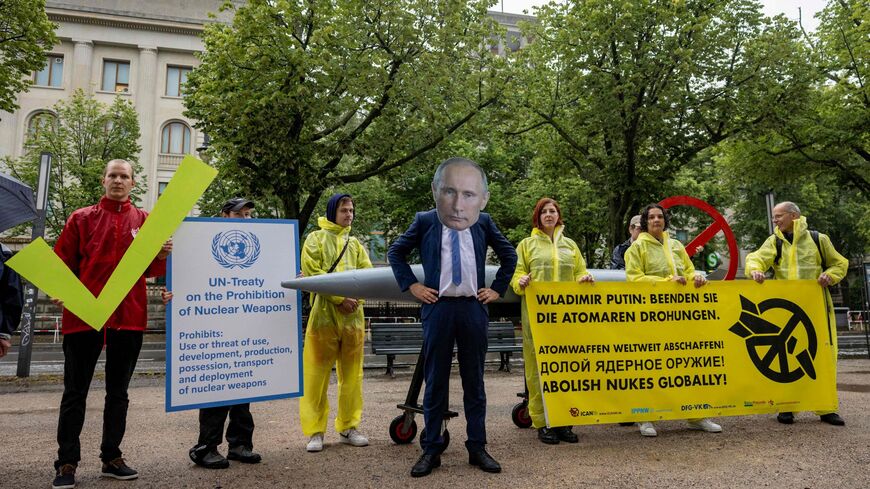Diplomatic and military officials from the United States, Russia, China, the United Kingdom and France convened in Egypt’s capital last week to discuss nuclear nonproliferation issues, the Biden administration announced Friday.
The sides met June 13-14 to discuss “strategic risk reduction, as well as nuclear doctrines and policy,” the State Department said in a press release announcing the meetings.
The US side “welcomed the professional approach of the delegations and the inclusion of defense officials in the thematic discussions,” the release read. “The United States will continue efforts to facilitate discussion among nuclear experts from these five countries on these important topics.”
Why it matters: The two-day talks in Cairo followed a previous working-group-level meeting held in Dubai in February. That marked the longest such meeting between the five powers on the subject since the Paris conference in 2021.
The selection of the Middle East as a location suggests the various sides increasingly see the region, once squarely within Washington's sphere of influence, to be more neutral territory.
The Biden administration is attempting to build rapport with China and Russia on nuclear nonproliferation issues to set groundwork for future treaties.
Earlier this month, the White House announced it was willing to engage with Russia and China on nuclear arms control without preconditions.
“We are under no illusions about the task at hand, of the hard work, and likely the long work, needed to help lay a new, stronger foundation for this era,” US National Security Adviser Jake Sullivan said in a speech at the Arms Control Association’s annual event earlier this month.
Long road ahead: Only one treaty limiting the number of nuclear warheads — dubbed New START — remains between the US and Russia, and is set to expire in February 2026 if it is not renewed.
Vladimir Putin’s government halted cooperation with compliance inspections for New START after the Biden administration rallied international support for Ukraine last year.
The Biden administration has accused Russia of refusing to engage in earnest with US diplomatic outreach on renewing the treaty. In November, a meeting set for Cairo to discuss New START treaty was postponed on Russia’s request.
The Trump administration rejected a Russian proposal to renew the treaty in 2020, arguing that China should be included in the treaty and that monitoring mechanisms should be strengthened.
China is not signatory to any international treaties that limit nuclear weapons arsenals. The Pentagon assessed last year that Beijing could potentially almost quadruple its current estimated arsenal of 400 warheads to some 1,500 by 2035 as President Xi Jinping’s government seeks to catch up to Russia and the US.
The Biden administration unveiled its nuclear defense strategy last October, elevating Russia and China to Cold War-era strategic rivals to the United States.
Know more: The US is attempting to persuade Iran’s government to dilute its uranium stockpiles to prevent Tehran from becoming a permanent nuclear threshold state.








